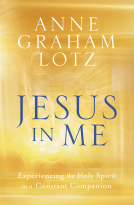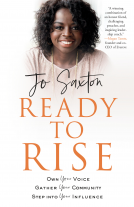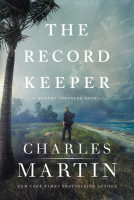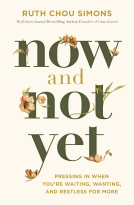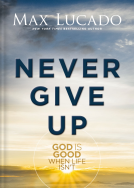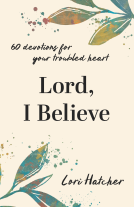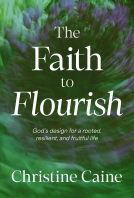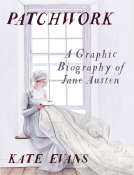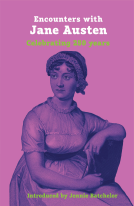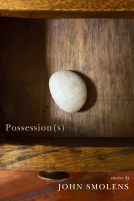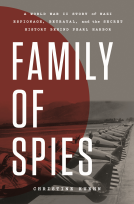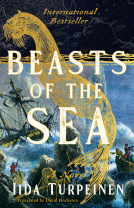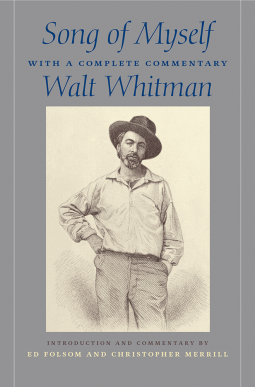
Song of Myself
With a Complete Commentary
by Walt Whitman
This title was previously available on NetGalley and is now archived.
Send NetGalley books directly to your Kindle or Kindle app
1
To read on a Kindle or Kindle app, please add kindle@netgalley.com as an approved email address to receive files in your Amazon account. Click here for step-by-step instructions.
2
Also find your Kindle email address within your Amazon account, and enter it here.
Pub Date Oct 15 2016 | Archive Date Oct 14 2016
University of Iowa Press | The Iowa Whitman Series
Description
Advance Praise
“This is a nearly perfect introduction to Song of Myself, with a great Whitman scholar and a terrific poet who love this breathtaking, funny, heartbreaking visionary poem at the center of American literature, talking to each other and to you as they read it. There couldn’t be a better guide except perhaps Whitman himself.”—Robert Hass, author, Time and Materials, Poems 1997–2005, National Book Award winner
“In this book, Ed Folsom and Christopher Merrill are the first to undertake an attentive and detailed reading of every section of Walt Whitman’s Song of Myself. Their readings offer a gift of wit, wisdom, and delight that will shape conversations about Whitman’s democratic epic for years to come.”—Betsy Erkkilä, Northwestern University
“An enlivening experiment in contrapuntal criticism. Folsom and Merrill—distinguished critic and poet—each provide section by section commentary on Song of Myself. Bold in form, rich in insight, this is the rare book that will be equally prized by novices and experts. Few books have brought me such pleasure.”—Kenneth M. Price, University of Nebraska-Lincoln
“This book offers the fresh and illuminating interpretations of a critic and a poet, two longtime readers of Whitman’s poetry deeply engaged in respinning all fifty-two sections of Song of Myself from their unique and equally perceptive angles of vision. Highly recommended for use at both the undergraduate and graduate levels.”—Jerome Loving, author, Walt Whitman: The Song of Himself
“When most critics write about literary texts, they focus on their favorite passages and ignore others that happen to not fit their agenda. Folsom and Merrill do something far different by entering into a dialog with Whitman’s Song of Myself, taking on the text of Whitman’s longest and most influential poem in its entirety. Their alternation of lyrical and critical voices makes for an entirely new and exhilarating reading experience that will open many new doors to Whitman’s greatest work for readers around the world.”—Walter Grünzweig, author, Constructing the German Walt Whitman
Available Editions
| EDITION | Paperback |
| ISBN | 9781609384654 |
| PRICE | $24.95 (USD) |
Average rating from 5 members
Featured Reviews
In 1969 I picked up a paperback copy of Leaves of Grass by Walt Whitman. I still have the book, underlined and worn. For me, Song of Myself has always been one of Whitman's trickier poems to tackle and I have only read it in bits and pieces. I was excited to see this new volume of Song of Myself with commentary. It gave me an opportunity to read the poem in its entirety, with aids to help me sort it out.
In 2014 the University of Iowa offered an open, international online course, Every Atom: Walk Whitman's "Song of Myself." This book arose from that project. This is the first section-by-section reading of the poem.
The introduction, Reading Song of Myself, notes that the poem appeared in six editions from 1855 to 1881, and its meaning changed as did America, viewed as nostalgia, or as arising from the Civil War and later class and racial stress, or even as mystical. It's appearance as the main poem of Leaves of Grass never changed.
Folsom reminds us of the huge changes during Whitman's writing of the poem: The Civil War and Reconstruction; scientific advances that toppled humanity's concept of itself in relation to time and the universe; the breakdown of religious beliefs constraining scientific beliefs; the struggle for freedom for African Americans.
I celebrate myself, and sing myself,
And what I assume you shall assume,
For every atom belonging to me as good belongs to you.
In Song of Myself, Whitman was offering a paradigm for understanding the interconnectedness of all things, imagining an ideal Democratic society and setting forth its tenets. What he proposes is radical. We are called to rise above all conventional and group thinking to perceive the material reality. All perceived divisions are false. Atoms flow from one thing into another which makes all interrelated and one. The grass arises from the dead in a perfect circle of life.
A child said What is the grass?
...
And now it seems to me the beautiful uncut hair of graves.
...
What do you think has become of the young and old men?
And what do you think has become of the women and children?
They are alive and well somewhere,
The smallest sprout shows there is really no death...
The poet embraces all humanity, identifying himself with every sort of person and every sort of human experience. Work, war, sex; slave and master, male and female; the innocent and the guilty, the quick and the dead; there is nothing alien. Boundaries, hierarchies, divisions are artificial. He shares all with everyone, and speaks for everyone.
I am the poet of the woman the same as the man,
And I say it is as great to be a woman as to be a man,
And I say there is nothing greater than the mother of men.
I am not the poet of goodness only, I do not decline to be the poet of wickedness also.
Whitman ends the poem with the lines "I too am not a bit tamed, I too am untranslatable/I sound my barbaric yawp over the roofs of the world." Words can scare communicate what the poet wants us to understand. We may need to look for his body "under your boot-soles" but his "barbaric yawp" has endured, to "make of it what you will." Thankfully, this commentary has aided me and opened up a new understanding of America's greatest poem.
I received a free ebook from the publisher through NetGalley in exchange for a fair and unbiased review.
 Joseph S, Reviewer
Joseph S, Reviewer
Song of Myself: With a Complete Commentary by Walt Whitman is a sectional breakdown of the poem with two different commentators -- Ed Folsom and Christopher Merrill. Folsom teaching and research have centered on nineteenth- and twentieth-century American poetry and culture. He earned his MA and PhD from the University of Rochester and currently the Roy J. Carver Professor of English at the University of Iowa. Merrill is an American poet, essayist, journalist and translator. Currently, he serves as director of the International Writing Program at the University of Iowa.
"Song of Myself" is often included in Whitman's Leaves of Grass. It has been called the core of Whitman's poetry and something he edited throughout his life. It examines the self, the soul, America, the universe, and back down to the atoms. Whitman also openly hid references to the equality of races and sex in the poem. It reminded me of Lou Reed's Walk on the Wild Side where censors were so worried about the reference to "colored girls" that they missed the sexual reference and caused quite a stir. Likewise, Song of Myself was not well received by social conservatives and was threatened by the Baltimore district attorney for violating obscenity laws. Whitman's view of race and sex extended beyond being progressive for his time.
The poem reads extremely well on its own and the commentary and afterword on each section help focus the reader on the changing themes of the poem. The first time I read Leaves of Grass, I just fell into the rhythm of the words and went blindly on with the flow. Folsom's commentary deal directly with the section read. He discusses the social and historical aspects of what is written and compares them to today and the poems setting. Merrill draws on personal experience and his own travels to relate what Whitman is saying. The joint effort gives the reader two views that are easily understood but without any heavy-handedness. They work well with Whitman’s easy, open style.
Whitman’s view is all encompassing from the joining of body and soul to religion The poetry drifts into philosophy. His views of American society are compared and contrasted with Thoreau and his Whitman's vision of America is compared with Tocqueville's writing of American democracy. He writes of war as a soldier and a sailor, Manifest Destiny, and of Texas. He writes of the America that is, which is not always the America America thinks it is. He presents the reader with science from the atoms to the cosmos. This is Whitman’s life work and it is all encompassing. It is everything he saw and believed recorded as a poem to be passed on. He knows that he will die and he calls on the reader to discuss and criticize the poem and to become a co-creator to add to what he was written -- To keep the poem alive as one would believe a soul lives on after death.
 Cheri S, Reviewer
Cheri S, Reviewer
Walt Whitman’s poem, which would eventually become “Song of Myself,” had no title in the 1855, first edition of Leaves of Grass. In the 1856 edition, it was “A Poem of Walt Whitman, an American.” In 1860, the title changed to “Walt Whitman.” It wasn’t until 1871 that Whitman changed the title to “Song of Myself.” Along with the changes in title were changes made over the course of time to the poem itself.
Whitman’s “I” is a spectator, a commentator of what he sees, seeing them all, rich, poor, black, white, all religions, all races, all the good and the bad, revealing them all, and then moving on.
In the early part of this poem, Whitman shows the reader how the physical self, the “I,” encompasses the universe and also is interchangeable with the universe. How every element in nature is in us, and when we have no further use of our bodies they return to the earth to once again be a part of the universe. We are all part of this cycle, and therefore equal. Grass, the ultimate symbol of democracy.
There’s more, there’s so much more. But, for me, this time it was the predominant “take-away.” The commentary of the poem is broken down by section, with a Critical Commentary followed by an Afterword. These are both elucidating. The Commentary focusing on “translating” the section, and the Afterword occasionally sharing a life experience that sheds more light on the section.
My grandfather figures predominantly in my love of poetry, and more specifically in the love of Whitman’s poetry. As a child, I sat beside him as he wrote his own poems, line by line, asking this much younger version of me what words I thought he should use. Including me in the process. When he wasn’t writing, or we weren’t polishing the pews or some such thing, he was reading poetry to me. In this case, I remember a lot of it discovered under his loving eye as he broke this down, line by line, first asking, and then helping me discover what this poem was about. For him, the equality of all men was the paramount message. My grandfather was poor, growing up in rural West Virginia in a house his father had lovingly built with his own hands. His parents had lived on his grandfather’s farm when they were first married, but moved to “town” in 1902 when Salem College was being built nearby, they wanted a college education for themselves and their children.
I had started reading another book around the same time, Rick Bragg’s “All Over But the Shoutin,’” and then a day or so later, I began in small bits reading “The Fire This Time: A New Generation Speaks” by Jesmyn Ward. It made for an interesting combination, from the 1850s to now, words, ideas and ideals shared by Whitman. Bragg, echoing the same thoughts throughout his memoir. Ward, one of today’s authors, asking the same questions.
Whitman’s celebration of the self includes everyone, regardless of race, morality, identity, religion, sexual orientation, or social standing.
To paraphrase the last line of an old Peter, Paul & Mary / Pete Seeger song: When will we ever learn?
Pub Date: 15 October 2016
Many thanks to University of Iowa Press (The Iowa Whitman Series), NetGalley, and to Ed Folsom and Christopher Merrill.
 Michelle K, Reviewer
Michelle K, Reviewer
Song of Myself
With a Complete Commentary
by Walt Whitman
University of Iowa Press
The Iowa Whitman Series
Poetry
Pub Date 15 Oct 2016
I am voluntarily reading and review an arc copy of Song of Myself through the publisher and their partnership with Netgalley.
This includes Walt Whitmans complete poem along with a detailed commentary which allows us to delve deeper into this poem. The poems are broken up into sections with a detailed commentary following each section.
This book is excellent for those who love poetry in general and Walt Whitman in general. It would work for a poetry course or for independent reading.
I give Song of Myself With a Complete Commentary five out of five stars.
Happy Reading
"Do I contradict myself?
Very well, I contradict myself.
I am large.
I contain multitudes."
So said the words of the Song of Myself to me when I was in my twenties, laying on the grass of my backyard, attempting this book for the fourth time, certain of ruin and right on the cusp of the second when the whole universe opened before me and drew me into the Song of Myself that was the Song of Every-Self and The Song of the Universe.
It's is with great ride and even greater pleasure that I can report that this indepth commentary on Song of Myself is stellarly researched and presented side piece for Whitman's poem. I learned more than I ever knew to find in the poems, even with years of decicated study and two English degrees.
Whitman was a brilliant man, and like many brilliant Transcendentalists of his time, he was not as understood in his time as he would be understood and beloved by the times who would follow later, studying him and cheering on his words, his life, his causes, in a way that would never have been something he strove for. He cheered for the underdog and he spoke, fluent and fluid, about the universality of all self and all experiences, as well as those things which blind us to it and pull us apart.
I am deeply grateful to the publishers and author for the permission to read this book. Thank you, thank you, thank you. I leave you, reminded again by those sage words, that I am large and not a bit tame in myself, in my others, and the universe itself.
Readers who liked this book also liked:
Jennie Batchelor, Julia Quinn, Natalie Jenner, Charlie Lovett, Talulah Riley, Janet Todd et al
Essays & Collections, Novellas & Short Stories, Women's Fiction


